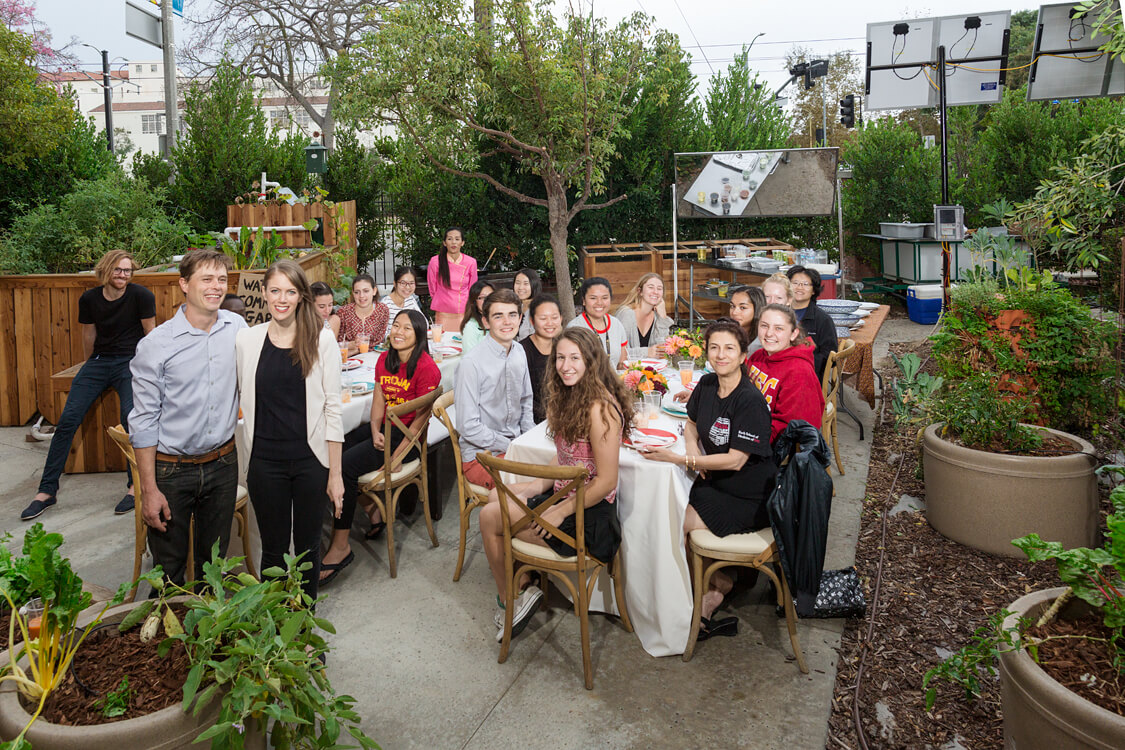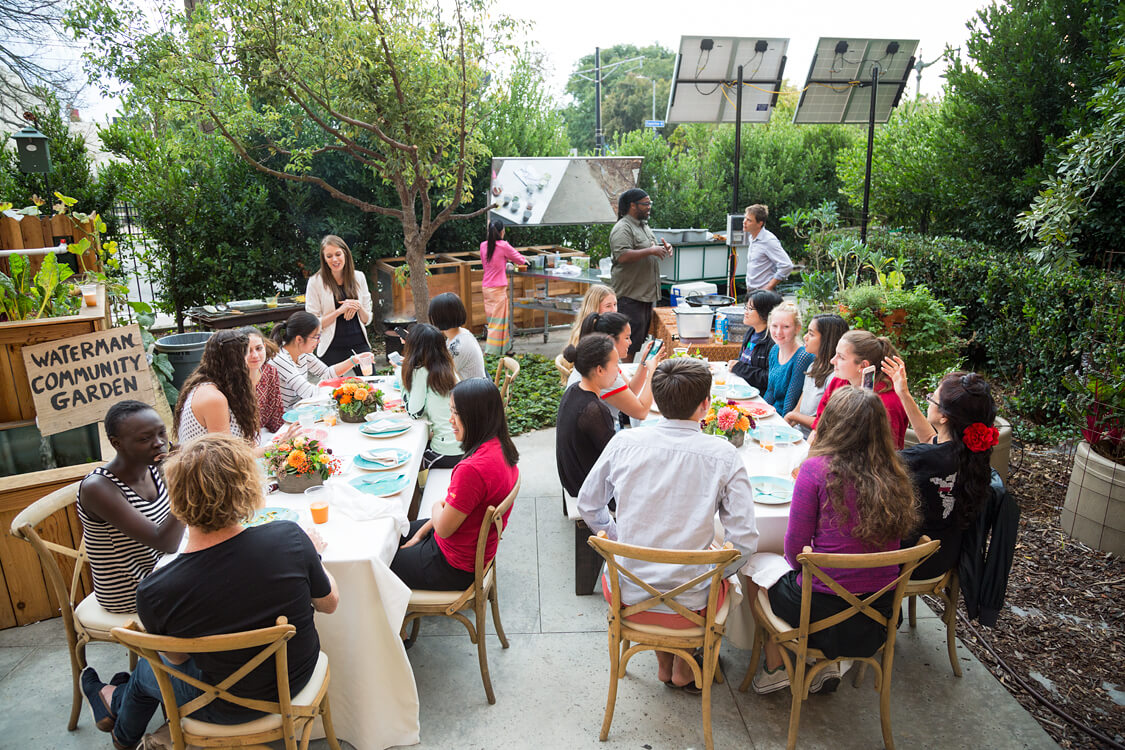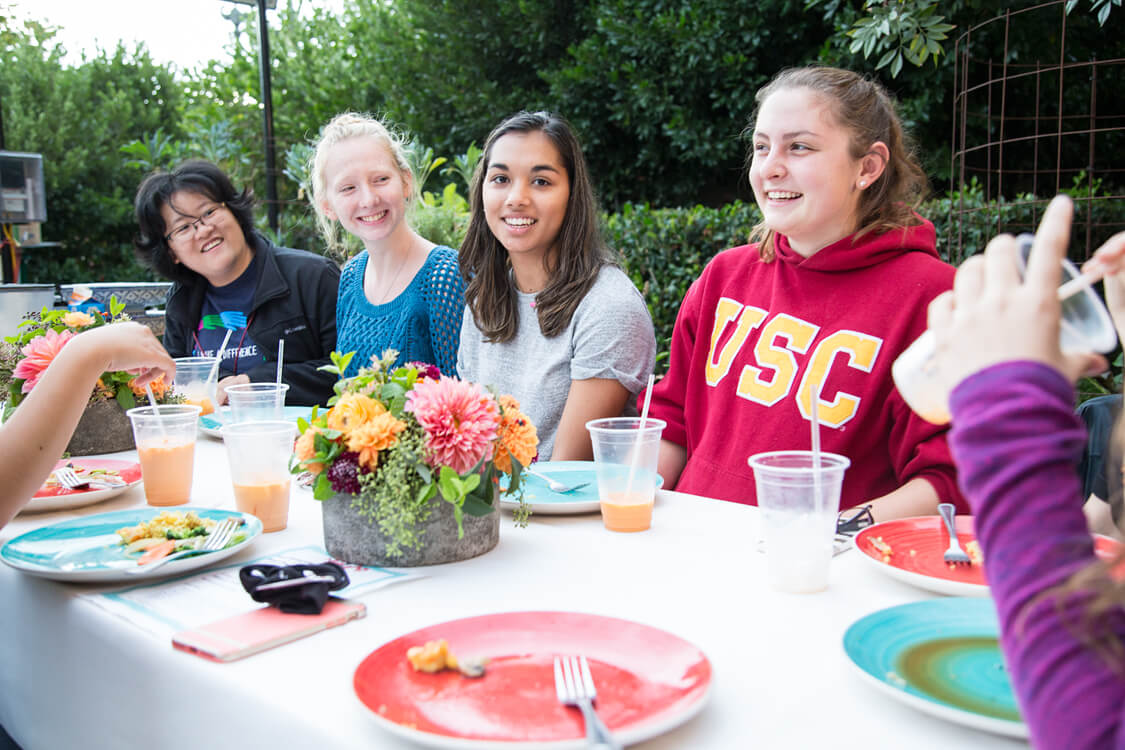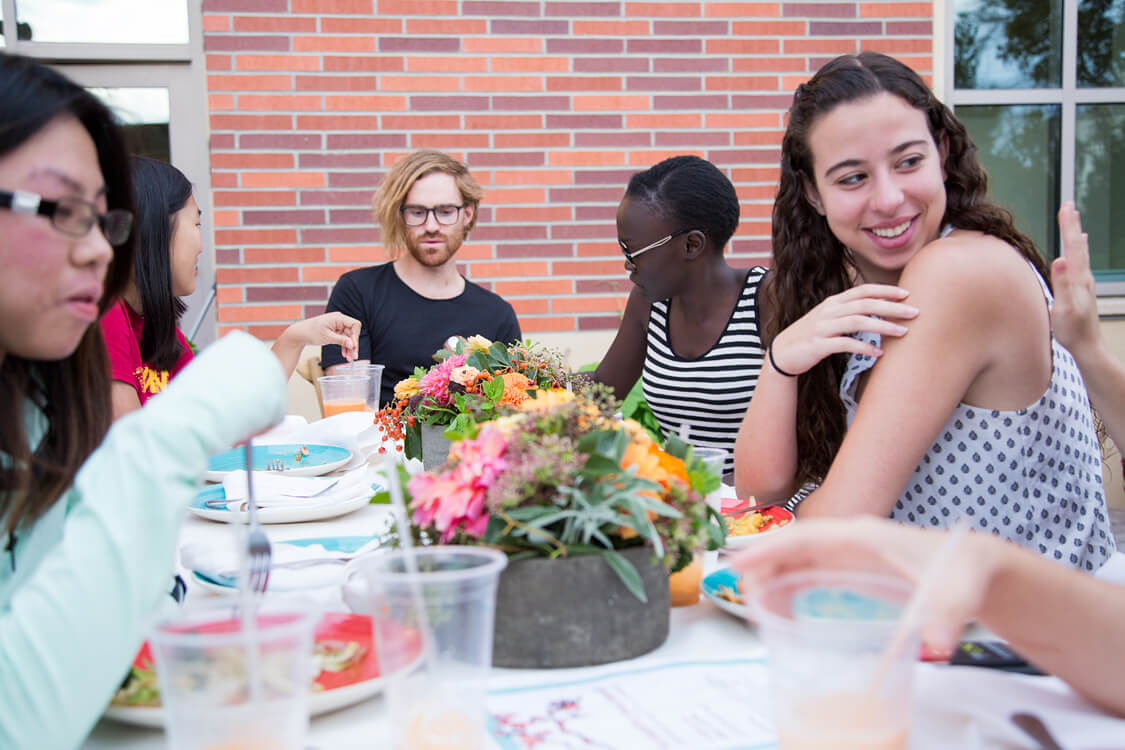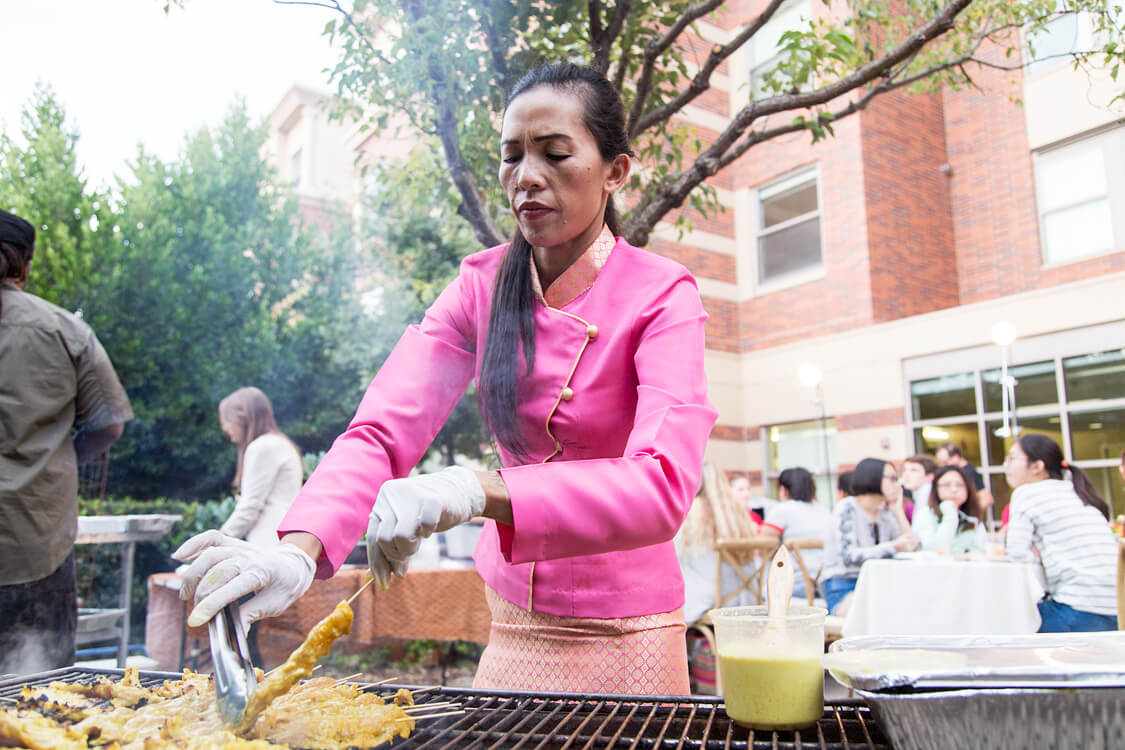Garden Party
It began with a single raised bed. From there, an entire community garden sprouted, complete with vertical planters, irrigation system, compost bins and the big draw, a solar-powered aquaponics system.
Nestled between Exposition Avenue and the USC freshman Parkside residence halls (International Residential College and Arts and Humanities Residential College) is the Parkside Community Garden, where Parkside students are introduced to environmental issues and urban gardening methods through workshops, dinners and weekly gardening days.
Kelly Sanders, a Parkside residential faculty fellow and assistant professor in the USC Viterbi Sonny Astani Department of Civil and Environmental Engineering, along with her husband, Jason Sanders, national manager for EcoSafe Zero Waste, have brought their interest in sustainability and environmental awareness to the students’ backyard.
“One of the things that we wanted to do when we moved into this program was to create some sustainability initiatives inside the residential dormitories,” Kelly Sanders said. “We really wanted to do a project that can impact students’ lives.”
In 2015, Sanders wrote a proposal with the help of a small group of students to the USC Green Engagement Fund. With the money they received, they built a three-stage, solar-powered aquaponics system within the community garden. Along with residents of the Parkside community, the construction project brought together undergraduate civil, environmental and mechanical engineering students, as well as local K-12 teachers and students interested in promoting sustainable gardening in their schools.
The aquaponics system creates a symbiotic relationship between the plants and animals that live within it. On the top level, dozens of fish create waste that feeds the plants on the second and third levels. The plants, along with crawfish in the bottom level, act as a filtration system, cleaning the water before it is pumped back up to the top. Between the s0lar-powered pump and the continuous cycling of the water, the system requires nearly no outside water or energy resources, making it a prime example of sustainability.
Sanders’ research focuses on evaluating the relationship between energy and water use, as well as reducing their impact on the environment. The Sanders Sustainable Systems Group, her lab, aims to increase environmental awareness by community outreach and engagement, and she speaks often at climate change summits and California drought panels. Sanders’ residential programs have expanded her outreach to USC students in every discipline and provide educational opportunities to local schools.
“It’s kind of a demonstration garden, because we have a lot of different systems that you could implement in an urban type of environment with very little land,” Sanders said. “And the aquaponics system is where we bring it all together in a more grandiose fashion to try to get the students to engage with the space.”
“We always have new crops growing,” said Michael Lyons, resident assistant for Parkside Apartments and an occupational therapy major. “Residents can access the area and pick vegetables and herbs.”
From the community the garden has developed, the system has undoubtedly played its role in attracting students. Parkside residents are given full access, with the freedom to explore and enjoy at will. They can garden, feed the fish or just relax and take in the serene environment.
“It’s a nice little Zen place where students that want to have that home-away-from-home feeling can go and can participate in something that feels sort of like home,” Sanders said. “There’s a little something for everybody, and I think it’s something that the community enjoys.”




